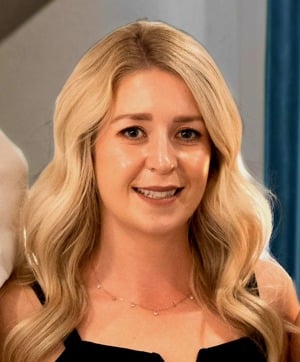

Kia ora! My name is Caoimhe, a 32-year-old from Dublin, Ireland currently living in Wellington since December 2019. I was diagnosed with coeliac disease in December 2016.
Since my diagnosis, I've found myself in the position of being an advocate for awareness among my colleagues and friends highlighting to them that this disease presents unique challenges that extend beyond dietary restrictions. It's been a journey filled with challenges and triumphs. Still, ultimately, it's about educating those around me, ensuring they understand the intricacies of this autoimmune disease and fostering a supportive and inclusive environment.
One of the biggest hurdles is dispelling misconceptions about coeliac disease. It is not an allergy or intolerance; it's an autoimmune disease. Many people assume it's simply a preference for gluten-free foods or a diet choice. However, I've had to explain that for those with coeliac disease, consuming gluten can have serious health consequences, including damage to the small intestine and long-term complications such as osteoporosis, heart disease, infertility and miscarriage, liver failure and much more.
Another common misconception when dining out is the belief that heat destroys gluten in fryers. In reality, gluten remains intact despite cooking temperatures, making dedicated gluten-free cooking spaces crucial.
Educating my colleagues has been a delicate balance of patience and persistence. When they have inquired about the severity of coeliac disease, I emphasize that the condition is consistent in its potential for harm, regardless of visible symptoms. Even in the absence of immediate physical illness, ongoing gluten exposure can lead to long-term damage to the gut. Simple steps, such as having a gluten-free area for shared lunches, choosing food first to avoid cross-contamination and cleaning surfaces thoroughly can be easily implemented and create a safe and inclusive environment.
With friends, my approach is more personal. I share my experiences to illustrate the daily challenges of living with coeliac disease, from navigating restaurant menus and kitchen processes to attending social gatherings. By sharing my struggles and successes, I've been able to foster understanding and empathy, prompting them to consider my dietary restrictions when planning activities or meals together.
With both friends and colleagues, I have had inclusive experiences at morning teas, dining out and shared home-cooked meals. Gluten-free areas have been set up with dedicated cutlery, plates and bowls. They have sought advice when shopping for gluten-free ingredients and exercise extreme caution when preparing food, making me feel supported and understood.
However, it hasn't always been easy. There have been moments of frustration and misunderstanding; being given gluten-containing meals while dining out, “may contain gluten” labelled ingredients being used and cross-contamination occurring mistakenly. Despite these challenges, I remain committed to raising awareness about coeliac disease and seizing every opportunity to educate others about this often misunderstood condition.
By raising awareness, fostering understanding and implementing practical measures to minimize cross-contamination, supportive environments can be created where individuals with coeliac disease can thrive. Together, we can promote inclusivity and enhance the well-being of everyone, regardless of their dietary requirements.
Article provided by Coeliac NZ member, Caoimhe Irwin
BECOME A MEMBER: during June and pay only the annual member subscription and save $35 off the joining fee.